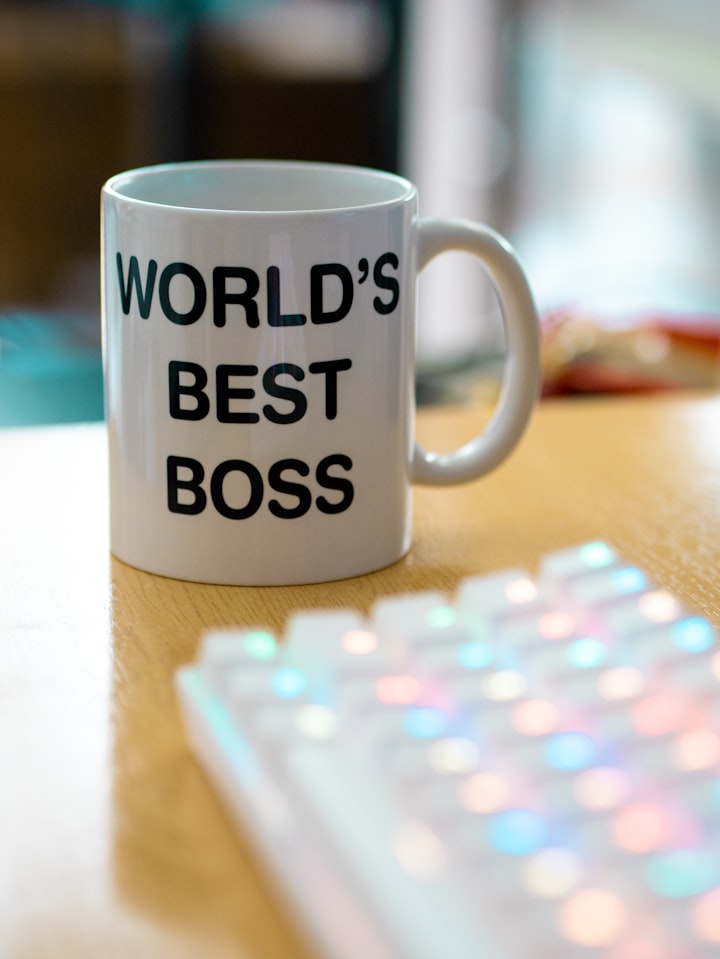How To Get Ready for the Perfect Interview!
Preparation is king!

Among most candidates, interviews are the most intimidating element. But that shouldn't be the case.
If you know what to expect and you're ready for anything, there's nothing to worry about. We know all the tricks - from what you need to wear to the interview to the ways you can increase your chances of success after the interview is over.
ATTITUDE MATTERS!
The first thing you need to do is make sure you show up for the interview with the right attitude. It's normal to be excited before an interview, but you have to change your mind about this.
Many spend hours thinking about all the things that could go wrong, and then, as a result, they even make mistakes in the interview. Think of the interview as a game. This is your chance to prove your real qualities, much more convincing than in your CV!
Remember! It's not just an employer interviewing you for a job. You want to see if that company suits you. If you think like that, you will not behave like a desperate man, ready to accept any job he would be offered.
Another important thing is positive thinking. The day before the interview, think that the interview will go very well, that you will give intelligent answers, that you will be relaxed and confident.
PREPARATION IS VITAL!
As with any other test, you need to prepare in advance for the interview. Think about what the employer would like to know and prepare some answers. Companies want optimistic and motivated people, so make sure your answers reflect these qualities.
Even if each interview is different, some questions always arise, and an answer prepared in advance will turn you into a confident person and will impress the employer.
Take the time to think about a few situations - when you have dealt with a difficult problem, exceeded your limits, or done something very important for the company you worked for before. It is very difficult to think about these things at the moment.
Another very common question is about defects. The cautious interviewee will know how to turn a negative answer into a positive one, explaining how a defect can become quality.
Saying that you have problems because you pay a lot of attention to details or that you feel the need to be motivated are good answers. Answering negative questions about past experiences means that you have learned from your mistakes and become better.
Research the company carefully because "What do you know about us?" is another common question, and nothing is an acceptable answer. Search the company's website, ask, read the press.
Think about the needs of the company and prepare yourself so that you meet the required standards. The job posting also gives you clues about this. Remember the more prepared you are, the more confident you are!
FIRST IMPRESSION COUNTS!
You need to know exactly where you are going and the name of the person you are meeting. Don't forget to give yourself an extra 15 minutes in case you get caught in traffic.
When you get to the interview, shake the interviewer's hand hard and look him in the eye. The interview is your chance to make a very good impression. Treat everyone you meet politely. As long as you wait, don't text, because someone might follow your gestures.
Here are some things not to do: do not chew gum, do not smoke, do not leave the phone open, do not interrupt. When you are asked why you want to change jobs, make sure you look like a person who is eager for professional development, not one who cannot adapt or work with others.
APPEARANCE MATTERS!
Studies show that the first impression is given in the first 10 seconds, according to the way it looks.
Dress like you already have a job! Find out how those who work in that company dress (we don't mean uniforms, of course) and dress the same. Even if the style is unofficial, dress decently. This is not the time to try a new or trendy style. A suit is suitable for any occasion. But be sure that it suits you and that you feel good about it.
Blue, gray, and black are the most professional colors. Red - confident and sociable. Yellow - developed a sense of humor. Green - temperate in crises.
BODY LANGUAGE
Even if the employer may not be aware of this, body language says a lot. Eye contact is mandatory and indicates that you are a confident, sincere person, that you have nothing to hide.
Avoid touching your face or ears as this indicates that you are elusive or lying. Crossing your legs or hands makes you look unapproachable. Don't lean too far forward because you will look tense. Stay upright but relaxed.
INTERVIEW STRATEGY
The interviewer is there to ask you questions, and you are there to answer intelligently and to the point. Be sure that your answers will explain that you are the right person for the job.
When asked about qualities, give examples. Instead of saying: I am a good salesperson, you can say: My sales skills are indicated by the fact that I managed to exceed the threshold by 50% every month. You may think you're bragging, but how could he know otherwise?
Make sure you ask questions too. Interviews are not one-way. I ask you to show that you thought seriously before applying. And you need to know if you want this job!
You must have at least 5 questions ready, which need more answers. Ask about the nature of the job, development opportunities, and how to train new staff. Ask how your job fits into the company's structure, about future strategies, and how the company adapts to new markets. This always impresses employers!
Don't ask about salary or benefits. Wait until you are offered the job and don't be the one to bring this topic up.
Be calm, speak slowly, and try to turn the interview into a discussion. If the dialogue goes naturally, the employer will believe that you have a lot in common and that he knows you better. So let him direct the discussion, but take an active part in the discussion.
Be active and speak freely. Adopt the tone set by the employer. If he is friendly and sociable, so be you. If it is formal and reserved you have to comply.
Do not comment or interrupt. If you get lost, take a short break, shut up and think about what you mean. Studies show that in a successful interview, candidates spend 50% of their time listening.
END OF INTERVIEW
Always, before leaving, express once again the interest in the desired job. This is not to say something desperate or false. But let it be known that you are impressed by what you have seen and learned so far.
During the next day, you can send an e-mail to tell the employer how interesting the discussion was.
After the interview, think and write down on a list what you think did not go well and what went very well. Even if you don't get the job, you will get better and better over time!





Comments
There are no comments for this story
Be the first to respond and start the conversation.